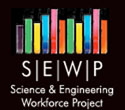2007 BIO International Convention in Boston, Boston
MA (5/6-5/9)
www.bio20007.org
The 2007 Biotechnology Industry
Organization (BIO) International Convention drew a record 22,366 attendees,
a nearly 15 percent increase from the previous year, with representatives
from 48 states and one-third of attendees from outside the United States.
(www.bio2007.org)
Days of Molecular Medicine 2007- Emerging Technologies and Cancer Biology
presented by Massachusetts General Hospital, Karolinska Institutet and
Nature Medicine, Cambridge, MA (5/22-5/24)
http://www.massgeneral.org/cvrc/meetings.html
The Days of Molecular Medicine is an interdisciplinary two and a half day
symposium held every spring, rotating between Boston, Massachusetts and Stockholm,
Sweden. The meeting brings together scientists and physicians from both academia
and the private sector, whose work is capitalizing on utilizing regenerative
medicine to address specific human disease. The Days of Molecular Medicine
2007, entitled Emerging Technologies and Cancer Biology, drew hundreds of
scientists from around the world. In addition, each Days of Molecular Medicine
meeting features a forum, which this year focused on Cancer and Cardiovascular
Disease in Global Health.
Bill Gates Speech at Harvard Commencement (6/7)
http://www.news.harvard.edu/gazette/2007/06.14/99-gates.html
On June 7th, following Harvard's morning Commencement ceremony, Bill Gates
spoke to an assembly of Harvard alumni spanning the classes of 1925 to 2007.
He emphasized the obligation of all people to help those who are poor, sick,
and dying and spoke of the devastation caused by diseases such as measles
that are eradicated in the United States. Because cures exist for these diseases,
Gates believes that the issue is less scientific than humanitarian: how to
deliver cures to those who need them.
Gates praised the recent advances of science and technology and attributed the rapid pace of innovation to enhanced collaboration made possible by the internet. He said, “the defining and ongoing innovations of this age – biotechnology, the computer, the Internet – give us a chance we’ve never had before to end extreme poverty and end death from preventable disease.”
Gates outlined a plan for achieving his goals, with four stages: “determine
a goal, find the highest-leverage approach, discover the ideal technology
for that approach, and in the meantime, make the smartest application of the
technology that you already have — whether it’s something sophisticated,
like a drug, or something simpler, like a bed net.” His plan would include
not only scientific research, funded both publicly and privately, but also
educating people susceptible to diseases like AIDS about how to avoid contracting
the disease.
Gates believes that a "creative capitalism" that will enable poor people to make a living, have some power in the market, and thus have some say in their government and that this can be achieved by making it profitable for those in charge. "If we can find approaches that meet the needs of the poor in ways that generate profits for business and votes for politicians," he asserted, "we will have found a sustainable way to reduce inequity in the world."
2007 Intel International Science and Engineering Fair(5/13-5/19)
www.sciserv.org/isef
High school students from all over the world traveled to Albuquerque, New
Mexico to compete in the Intel International Science and Engineering Fair
from May 13-19 2007. PhD-educated professionals from the nation’s top
firms and universities judged their science projects in 18 fields, from Animal
Sciences to Energy and Transportation to Physics and Astronomy. Winners took
home prizes totaling over four million dollars, in the forms of scholarships,
paid internships, and trips to other science fairs around the world. Winning
creations ranged from soluble carbon nanotubes to cooperating bumblebees,
to a computer design for analyzing DNA. The Intel International Science and
Engineering fair is a highly selective opportunity for high school students,
requiring several rounds of qualifying trials in state science fairs and selecting
the brightest young scientists from 40 countries and territories.
Read More: Junior R&D (07/23/07)
http://members.forbes.com/forbes/2007/0723/060.html
Winners of the Intel International Science and Engineering Fair focus on researching
real-world issues and produce groundbreaking discoveries even before they
enter the workforce.


